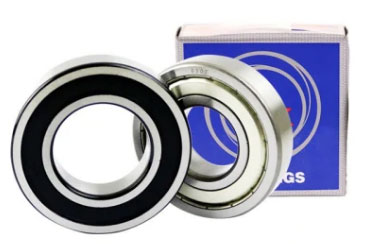Home / News / CNC Machine Bearings: The Backbone of High Precision and Reliability in Modern Manufacturing
CNC Machine Bearings: The Backbone of High Precision and Reliability in Modern Manufacturing
Introduction
In the world of modern manufacturing, computer numerical control (CNC) machines play a crucial role in the production of high-quality, precision-engineered components. These machines rely on a complex system of moving parts, among which bearings are indispensable components that ensure smooth, accurate, and reliable operation. In this article, we will explore the types, characteristics, and applications of CNC machine bearings in the context of contemporary manufacturing.
Types of CNC Machine Bearings
There are several types of bearings commonly used in CNC machines, each with unique properties that cater to specific requirements of the machine tool:
Angular Contact Ball Bearings: These bearings are designed to support both radial and axial loads, making them ideal for high-speed applications where precision is essential. Angular contact ball bearings are commonly used in CNC spindles and ball screws.
Cylindrical Roller Bearings: These bearings support high radial loads and are ideal for applications with heavy loads and high stiffness requirements. They are often used in the spindle assembly of CNC lathes and milling machines.
Tapered Roller Bearings: Tapered roller bearings can support both radial and axial loads, with the ability to handle large loads and high speeds. They are frequently used in CNC machine tool spindles and gearboxes.
Needle Roller Bearings: These bearings are characterized by their small diameter and high load-carrying capacity, making them suitable for applications with limited space and high load requirements. Needle roller bearings are often used in CNC machine tool linear guides and cam followers.

Characteristics of CNC Machine Bearings
CNC machine bearings are designed to meet the stringent demands of precision engineering and manufacturing, offering several key characteristics:
High Precision: CNC machine bearings are manufactured to extremely tight tolerances, ensuring minimal runout and precise positioning for accurate machining.
High Rigidity: The rigidity of CNC machine bearings is essential for maintaining the stability of the machining process and ensuring the accuracy of the finished product.
High-Speed Capability: CNC machine bearings are designed to operate at high speeds, enabling faster machining and improved productivity.
Long Service Life: High-quality materials and manufacturing techniques are employed in the production of CNC machine bearings, ensuring a long service life and reduced downtime for maintenance.
Applications of CNC Machine Bearings
CNC machine bearings are utilized across various industries and applications where precision and reliability are of paramount importance, including:
Aerospace Manufacturing: CNC machine bearings play a vital role in the production of precision-engineered components for aircraft engines, landing gear systems, and avionics.
Automotive Industry: The accuracy and reliability of CNC machine bearings contribute to the manufacturing of high-quality automotive components, such as engine blocks, transmission parts, and suspension systems.
Medical Device Manufacturing: CNC machine bearings are used in the production of medical devices and instruments, such as surgical robots, dental handpieces, and orthopedic implants.
Electronics Manufacturing: The precision and high-speed capabilities of CNC machine bearings enable the production of intricate electronic components, such as printed circuit boards and semiconductor devices.
Conclusion
CNC machine bearings are the backbone of high precision and reliability in modern manufacturing. Their unique characteristics and versatile applications contribute to the production of high-quality, precision-engineered components across various industries, from aerospace and automotive to medical devices and electronics. As the demand for precision and efficiency in manufacturing continues to grow, CNC machine bearings will undoubtedly play a pivotal role in meeting these needs, driving innovation and progress in the world of advanced manufacturing.
- Previous: The Spindle Bearing Preload Adjustment Tool: A Key Innovation for Precision and Reliability in Machi
- Next: High Precision CNC Bearings: The Key to Superior Performance in Advanced Manufacturing











